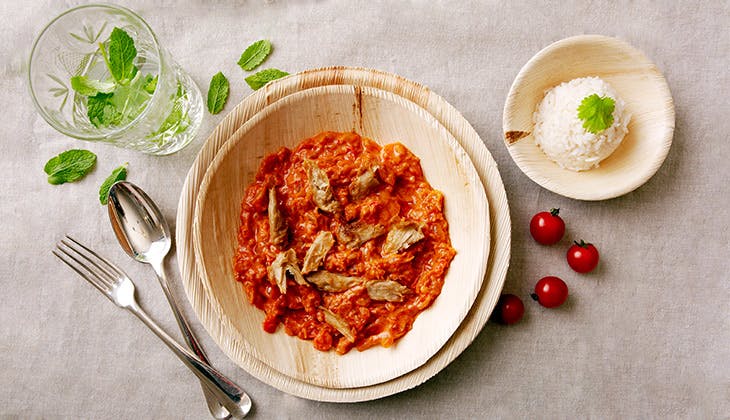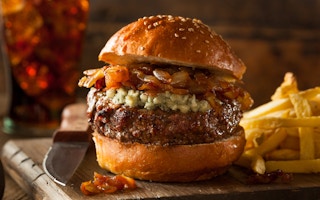Meat - the key element in our modern diets - has been linked to everything from health problems to climate change. The World Health Organisation last November caused a public outcry when it declared that processed meats cause cancer; while new research from UK think tank Chatham House argues that cutting meat consumption is needed to prevent global warming from exceeding dangerous levels.
To continue reading, subscribe to Eco‑Business.
There's something for everyone. We offer a range of subscription plans.
- Access our stories and receive our Insights Weekly newsletter with the free EB Member plan.
- Unlock unlimited access to our content and archive with EB Circle.
- Publish your content with EB Premium.
This is pushing some researchers and scientists to look for radical solutions. Dr Mark Post of Maastricht University in the Netherlands believes that in five years’ time, a tastier and cheaper lab-grown burger will be available for the masses.
In an interview with the BBC in October, Peter Vestrate, part of Dr Post’s team and head of a new venture set up to commercialise the lab-burger, said: “I am confident that when it is offered as an alternative to meat that increasing numbers of people will find it hard not to buy our product for ethical reasons”.
After years of research, the team had discovered a way to make meat by using cells taken from cattle and cultured in the serum of unborn calves. Recently, they also found a way to incorporate iron and fat into their product, in the hope that its improved taste would convince the masses of its viability as an alternative to meat.
Most crucially, Dr Post last year said the team had trimmed its considerable production cost from an initial US$325,000 to a more affordable $80 per kilogramme. And it’s set to get cheaper.
Ultimately, the team hopes to eliminate the use of foetal serum altogether and will look to other bio sources such as algae and cyanobacteria as the material to grow his product in. This means the lab-grown meat will eventually become even less dependent on animal sources.
For those with more traditional tastes, there is already a burgeoning industry in vegetarian and vegan products that make use of advances in technology to create more faithful mimics of meat products in taste and look.
The Vegetarian Butcher, a company based also in the Netherlands, uses 100 per cent plant-based, locally grown sources to produce meat substitutes and collaborates with chefs to produce food that copy the complex flavours and textures of meat products via the use of high-tech machinery and techniques.
“
”[The] biggest obstacle to a plant-based future are meat and dairy substitutes which lack taste. Anyone who tries a poor-tasting meat or dairy substitute is unlikely to come back a second time.”
Jaap Korteweg, founder of The Vegetarian Butcher
Aggressively marketed and sold in traditional storefronts meant to conjure up the atmosphere of old butcher shops, the company has seen its popularity spread throughout Europe and the Middle East, while gaining a foothold in Asia via South Korea.
According to founder Jaap Korteweg, its appeal is simple: it just tastes good. He says on the company website that “[the] biggest obstacle to a plant-based future are meat and dairy substitutes which lack taste. Anyone who tries a poor-tasting meat or dairy substitute is unlikely to come back a second time.”

A red thai curry made with chicken chunks from the Vegetarian Butcher showcases its versatility in preparation. Image: The Vegetarian Butcher
Still, even if they are appetising, it will take time and effort to convince the public - who are resistant to “inferior” flavours of plant-based products or the “unnatural” essence of such “frankenfoods” - of its merits.
While it is a daunting challenge, Dr Post is optimistic: “I do think that in 20, 30 years from now we will have a viable industry producing alternative beef.”








